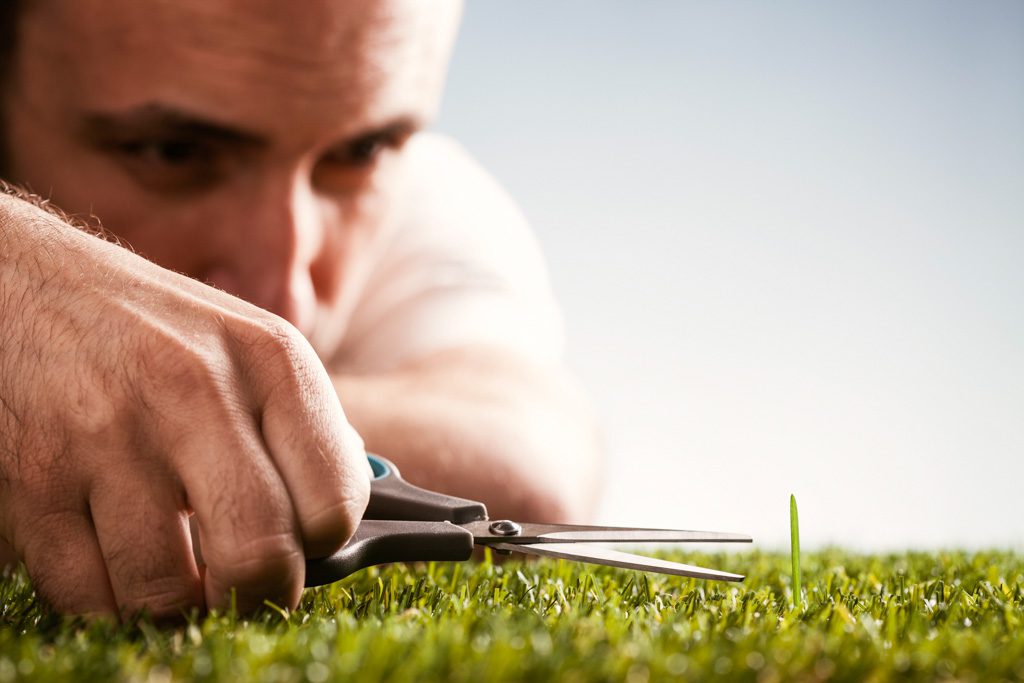Keep it simple.
That’s how you maintain focus, build momentum and grow your business.
Virtuosity is the skill of doing the simple stuff really well, over and over, with consistency and excellence.
In other words:
Master the basics yourself. Systemize them for your staff. Optimize outcomes over time, but do the actions forever. Do not stop when confronted by challenge, boredom or novelty.
This is a very tough skill to master. High-level performers in golf, for example, work on their basic swing for years; novices buy new equipment. New basketball players focus more on their shoes than their dribbling. Cyclists buy lighter bikes instead of spending five more hours every week in the saddle.
Greg Glassman, founder of CrossFit, used the gymnastics definition of virtuosity: performing the common uncommonly well.
For example, gym owners should work to master selling their program before attempting to “flood their gym with leads.” But the siren song of “leads! leads! leads!” is strong enough to distract most of them.
Likewise, gym owners should develop their staff members to make them all an “8/10” as coaches instead of employing a few “3s” and one “9.” This includes doing evaluations and offering feedback—uncomfortable processes that many gym owners forget or ignore.
Entrepreneurs in any service business should develop the skills of asking for referrals, nurturing leads and creating content before considering a TikTok account—but most lack the discipline to master the basics because the lure of novelty is so strong.
Beware the Novice’s Curse
One of the challenges of mastering the basics is that the process gets boring.
Who wants to do another sales role-playing exercise when they could shoot an Instagram reel or record a podcast? It’s tempting to be the first to try (and talk about) a new idea, be an early adopter or tell your friends how to do the new thing. This is the curse of the novice.
In a letter to coaches around the world, Glassman wrote, “There is a compelling tendency among novices developing any skill or art, whether learning to play the violin, write poetry, or compete in gymnastics, to quickly move past the fundamentals and on to more elaborate, more sophisticated movements, skills or techniques. This compulsion is the novice’s curse—the rush to originality and risk.”
He went on to describe the “novice’s curse”—manifested as “excessive adornment, silly creativity, weak fundamentals and, ultimately, a marked lack of virtuosity and delayed mastery.”
This is equally accurate when applied to business.
Focusing on building a Facebook-ads campaign before a consistent sales process means a lot of time is wasted on cold leads, poor conversion and burnout. Worse, it’s hard to learn to be a better salesperson if the pitch is different every time—the entrepreneur can’t see what’s working with clarity.
What are the basics every entrepreneur should master?
- Reading a profit-and-loss statement (P&L).
- Getting client referrals.
- Ensuring consistent delivery of their service by their staff.
- Selling their product.
- Mastering client communications.
- Performing staff evaluations.
- Engaging in regular content creation.
- And more.
It’s important to note that “mastery” of any of these skills is nearly impossible. But most entrepreneurs can grow their business faster by improving the fundamentals than by adding new strategies or tactics.
For example, every entrepreneur should know how to read a P&L. Even basic familiarity will help an entrepreneur understand how the business is doing. But the pursuit of mastery—asking questions of the bookkeeper, thinking about classifications, identifying opportunities and putting in lots of reps—will grow their business faster than searching for new trends on social media. The P&L should create focus for a business owner, which is the first step to growth.
As another example, a business owner who can improve close rate by 10 percent will grow the business faster than an owner who doubles ad spend. Ads take time to ramp up, they take time to optimize, and they require constant monitoring. When lead flow begins to slow down, the ads must be retooled, and the process begins again.
But sales is different: Performing better with every lead will multiply the value of all future advertising. But most entrepreneurs skip from platform to platform, make small investments in each and then move to the next when their ads “don’t work.”
Skills and a Lifetime of ROI
The basics never go away. Mastering them is more important than learning something new, but the pull of novelty is strong. Our job, as coaches and mentors, is to teach the basics and then revisit them with the entrepreneurs we serve. Of course we can’t ignore the fun, new stuff. But novelty must always be balanced with the pursuit of virtuosity in the fundamentals.
In this series, I’ve walked you through three skills every gym owner should have: focus, “gain thinking” and virtuosity. There are more, such as patience, abundance mindset, evidence-based decision making, healthy skepticism and so on. We help entrepreneurs acquire these skills in our mentorship program even if we don’t always call them out by name.
And why is skill acquisition important? Well, the value of skills compounds. You can’t be taxed on your skills, you can’t lose them in a breakup, and your landlord can’t increase your rent as you acquire them.
Building skills is really what makes you a good entrepreneur for life.
To talk to a member of my team about improving your business skills, click here.
Other Media in This Series
“Top Skills for Gym Owners: Focus for the Win”
“Top Skills for Gym Owners: Gain Thinking”

